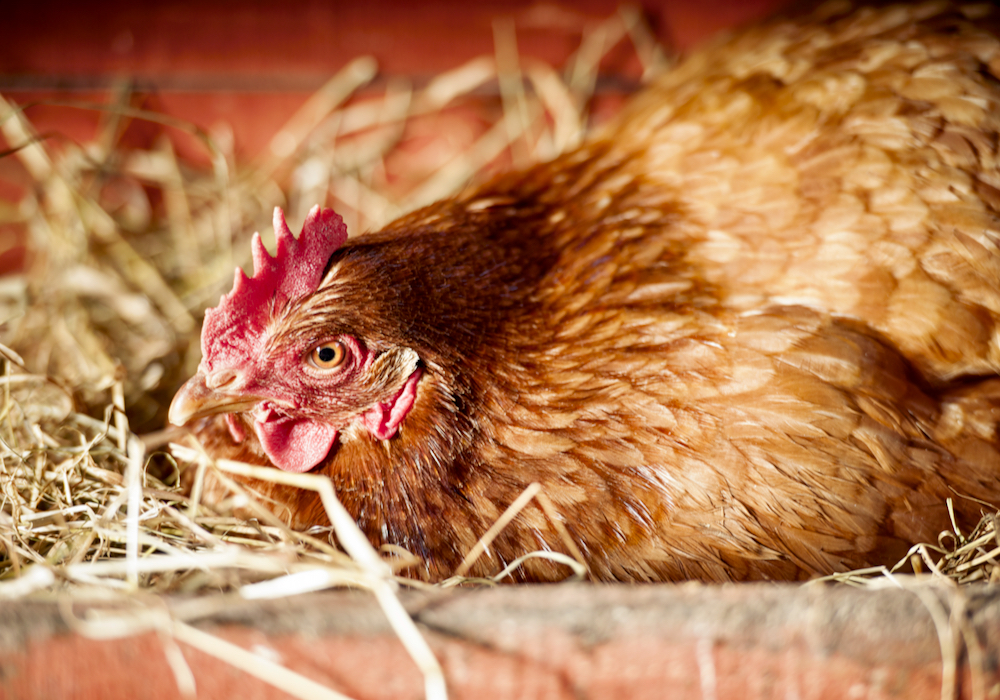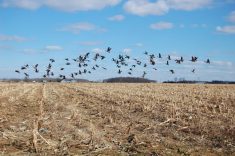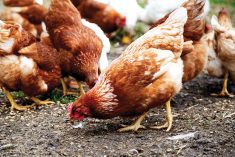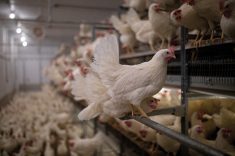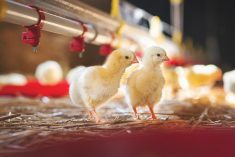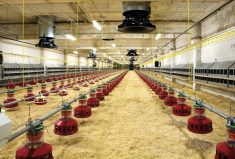A pilot program to allow laying hens inside Winnipeg city limits is a step closer to approval despite the expressed concerns of animal rights advocates.
“There’s always concerns,” said Councilor Ross Eadie. “I think there are a lot of really responsible people out there who can raise chickens to produce eggs and care for them appropriately.”
In a 3-1 vote, members of the Standing Policy Committee on Protection, Community Services and Parks approved an urban hen pilot program during a meeting on April 11. Final say, however, rests with City Council.
Read Also

Ship’s turning for gene-edited crops
More and more countries have decided that gene-edited crops will be treated the same as conventional plant breeding.
The pilot, if green-lit, would allow 20 flocks of hens in the city and would test out regulations for their care.
Councilor Sherri Rollins voted against the motion.
“I don’t think it’s time,” she said. “I’m concerned about avian flu, but I’m also concerned about [Animal Services’ and vets’] capacity.”
Several representatives of animal advocacy groups spoke to the committee about their concerns, which included the current widespread outbreak of avian influenza in North America—which at time of writing had yet to be reported in Manitoba.
Owners of small flocks have been advised to keep their birds indoors in Saskatchewan after the bird flu was detected in a goose says an April 11 report from the Canadian Press.
“It’s really not a matter of if, it’s a matter of when,” said Brittany Semeniuk, an animal welfare specialist with the Winnipeg Humane Society. She added implementing a pilot during an outbreak may be bad optics.
Semeniuk also said she was concerned that chicken owners would discard hens after their egg production decreased. She said hens have the ability to live 12 or more years, though their ability to lay eggs may drop substantially after one or two years.
“This program makes it far too easy to view these sentient, intelligent animals as disposable,” Semeniuk said.
Most backyard flocks can be expected to lay for three or four years, according to Sandra Stuttgen, a professor in the University of Wisconsin-Madison’s extension department. Egg quantity and quality will decrease each year. Chickens generally live six to eight years, she wrote.
Other speakers mentioned concerns like lack of Winnipeg vets qualified to treat chickens and the possibility that many chickens would end up in animal shelters.
They also objected to claims that urban poultry would promote food security, saying that the cost of building a proper chicken coop and feeding and caring for chickens would be too expensive for low-income families.
Urban Chicken proponent Louise May told the Co-operator she was glad the committee approved the pilot project but said she has concerns about it.
May, who raises chickens and other animals on her St. Norbert property, represented poultry proponents during meetings with city officials.
She said it seems “pretty unfair” to ask 20 people to set up chicken coops and backyard flocks with no guarantee they’ll be able to legally keep them once the pilot is over.
She said she anticipated no current, clandestine chicken owners (whose presence the committee acknowledged) will want to stick their necks out—leaving piloting the regulation to beginners.
Committee documents indicated the pilot would allow flocks of no more than four birds on 20 sites. Roosters are banned, as is on-site slaughter. The documents said the pilot will also focus on safety and animal welfare requirements like protection from predators and a plan for extreme temperatures.
Officials will hammer out the details and present them to the standing committee before the pilot goes to a final council vote slated for January 2023.
As for avian influenza, both May and Coun. Eadie said the disease has been a concern for years.
May said legalizing would allow officials to better support owners to keep chickens healthy. Residents are already keeping chickens on the down-low, she said, and there’s no way to know how many or where they are.
The Manitoba Egg Farmers told the Co-operator on April 12 that since there are no commercial egg farms in or near enough to Winnipeg, the issue is an urban matter. “Our main concern is the health of the hens,” the organization said in a statement.


